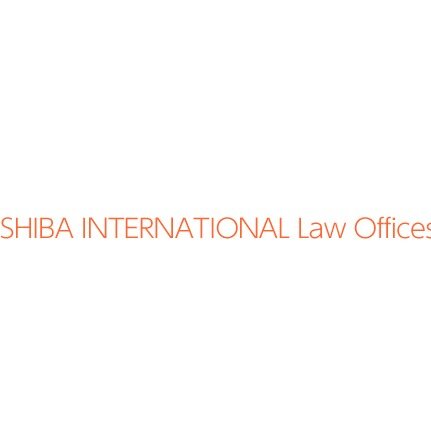Best Drunk Driving Lawyers in Tokyo
Share your needs with us, get contacted by law firms.
Free. Takes 2 min.
List of the best lawyers in Tokyo, Japan
About Drunk Driving Law in Tokyo, Japan
Drunk driving in Tokyo, Japan, is subject to strict laws designed to ensure public safety. In Japan, the legal blood alcohol concentration (BAC) limit for driving is 0.03%, which is significantly lower than in many other countries. The nation’s legal system imposes severe penalties on those found guilty of drunk driving, which can include heavy fines, imprisonment, and suspension or revocation of driver's licenses. Furthermore, Japan practices the principle of "zero tolerance," meaning drivers can be penalized even for minor traces of alcohol consumption if they exhibit unsafe driving behavior.
Why You May Need a Lawyer
There are several situations in which an individual may require legal assistance when faced with a drunk driving charge in Tokyo. Navigating the Japanese legal system can be complex, especially for foreigners or individuals unfamiliar with local laws. Here are some common scenarios:
- A person is charged with exceeding the legal BAC limit and faces potential penalties.
- A driver is involved in an accident while under the influence of alcohol, leading to additional charges.
- A foreign national encounters language barriers and needs an advocate for negotiation or trial proceedings.
- An individual seeks to contest the results of a breathalyzer or field sobriety test.
- A licensed professional risks losing their professional credentials due to a drunk driving charge.
Local Laws Overview
Japan’s Road Traffic Act governs drunk driving. Key aspects relevant in Tokyo include:
- Blood Alcohol Concentration (BAC) Limits: The legal limit for BAC is 0.03%, but drivers can face penalties even with lower concentrations if driving appears impaired.
- Penalties: Depending on the severity, penalties can range from fines starting at ¥500,000 to imprisonment for up to five years. License suspension or revocation is also common.
- Impairment without Exceeding BAC: Even if a driver is below the legal BAC limit, any indication of impaired driving can lead to charges.
- Liability for Passengers: Passengers who knowingly allow intoxicated individuals to drive can also face penalties.
Frequently Asked Questions
What is the legal BAC limit for drivers in Japan?
The legal BAC limit for drivers in Japan is 0.03%. However, penalties can still apply for amounts lower than this if driving is unsafe.
What are the consequences of a drunk driving conviction in Tokyo?
Consequences may include fines upwards of ¥500,000, imprisonment for up to five years, and license suspension or revocation.
Can passengers be held liable for drunk driving incidents?
Yes, passengers who allow an intoxicated person to drive can face legal consequences, including fines and potential imprisonment.
Are field sobriety tests common in Japan?
Yes, field sobriety tests, along with breathalyzer tests, are commonly used by police to assess potential impairment.
Can foreigners charged with drunk driving face deportation?
Yes, foreign nationals may face deportation or a ban from re-entering Japan upon conviction of drunk driving.
Is refusing a breathalyzer test a viable option?
Refusing a breathalyzer test can result in penalties similar to or more severe than those for a standard DUI conviction.
How might a drunk driving charge affect my driver's license?
A DUI charge can lead to suspension or revocation of your driver's license, impacting your ability to drive legally in Japan.
Does Japan have a zero-tolerance policy for novice drivers?
Yes, novice drivers (those with less than one year of driving experience) face stricter enforcements and zero-tolerance for alcohol consumption.
What is Japan’s stance on DUI repeat offenders?
DUI repeat offenders face increasingly severe penalties, including longer imprisonment terms and higher fines.
Are there any mitigating factors that can reduce a DUI charge?
Circumstances such as lack of prior offenses, employment conditions, or taking part in an alcohol rehabilitation program may influence sentencing, but legal counsel is recommended for advocating these points.
Additional Resources
When seeking legal advice or information related to drunk driving, consider the following resources and organizations:
- Japanese Bar Association: Offers resources and referrals for qualified legal counsel.
- Tokyo Metropolitan Police Department: Provides information on road safety laws and traffic regulations.
- Traffic Safety Association: Works to promote awareness and education concerning road safety and compliance.
- Embassy or Consulate Services: For foreign nationals, embassies can provide support and guidance in legal matters.
Next Steps
If you find yourself in need of legal assistance following a drunk driving charge in Tokyo, it is critical to take immediate action. Here’s a recommended course of action:
- Contact a qualified attorney specialized in DUI cases in Japan to discuss your situation.
- Gather all relevant documents, such as the police report, breathalyzer results, and any witnesses’ contact information.
- Familiarize yourself with your legal rights and obligations under Japanese law.
- Prepare to discuss potential defense strategies with your lawyer, including challenging evidence or exploring plea agreements.
- Engage proactively in rehabilitation programs if drinking habit attribution is a factor in your case.
Lawzana helps you find the best lawyers and law firms in Tokyo through a curated and pre-screened list of qualified legal professionals. Our platform offers rankings and detailed profiles of attorneys and law firms, allowing you to compare based on practice areas, including Drunk Driving, experience, and client feedback.
Each profile includes a description of the firm's areas of practice, client reviews, team members and partners, year of establishment, spoken languages, office locations, contact information, social media presence, and any published articles or resources. Most firms on our platform speak English and are experienced in both local and international legal matters.
Get a quote from top-rated law firms in Tokyo, Japan — quickly, securely, and without unnecessary hassle.
Disclaimer:
The information provided on this page is for general informational purposes only and does not constitute legal advice. While we strive to ensure the accuracy and relevance of the content, legal information may change over time, and interpretations of the law can vary. You should always consult with a qualified legal professional for advice specific to your situation.
We disclaim all liability for actions taken or not taken based on the content of this page. If you believe any information is incorrect or outdated, please contact us, and we will review and update it where appropriate.









